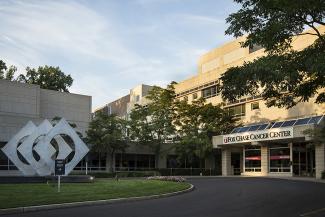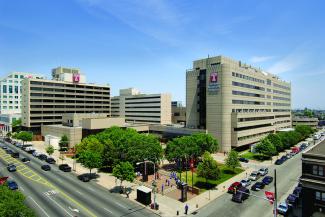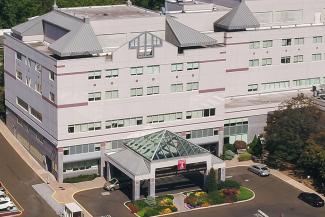Laparoscopic or Robotic-Assisted Radical/Total Nephrectomy
While partial, kidney sparing removal of the kidney is our preferred method, you may need a radical or total nephrectomy (total kidney removal) if the:
- Tumor is too large or problematic to spare the kidney
- Kidney no longer functions (this can also be caused by reasons other than cancer)
The entire minimally invasive radical nephrectomy procedure is performed through tiny keyhole-sized incisions, as opposed to a large, open incision on the side of the abdomen – an incision that is often more painful and sometimes requires partial removal of a rib.
A More Conservative Approach to Nephrectomy
Temple Health urologists may be able to perform partial nephrectomy even in patients with complex tumors who have been told by others that they require a total (or "radical") nephrectomy. Many times, our surgeons can remove tumors through minimally invasive procedures that surgeons at other institutions would remove through a large incision.
When clinically appropriate, our surgeons prefer partial nephrectomy (kidney sparing) with kidney reconstruction as opposed to radical nephrectomy because a reconstructed kidney offers two main advantages:
- It decreases the risk of long-term kidney failure.
- It acts as a reserve if the other kidney sustains damage.
We are often able to perform robotic kidney procedures in the vast majority of patients with special needs or risk factors (such as Jehovah's Witness patients or those with obesity, multiple prior surgeries, advanced stage/early spread of the tumor into blood vessels, complex medical conditions, or those older in age), who might otherwise be told they are not eligible for open or minimally invasive surgery.
If your urologist tells you that you are not a candidate for a minimally invasive approach or a kidney-sparing approach, contact us today to schedule a consultation.
Ready for an Appointment?
Find a doctor near you, request an appointment, or call 800-TEMPLE-MED (800-836-7536) today.


